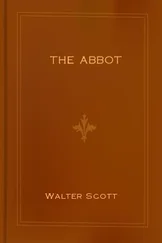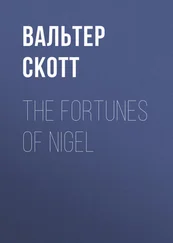Walter Scott - The Fortunes of Nigel
Здесь есть возможность читать онлайн «Walter Scott - The Fortunes of Nigel» весь текст электронной книги совершенно бесплатно (целиком полную версию без сокращений). В некоторых случаях можно слушать аудио, скачать через торрент в формате fb2 и присутствует краткое содержание. Год выпуска: 2004, Жанр: Исторические приключения, на английском языке. Описание произведения, (предисловие) а так же отзывы посетителей доступны на портале библиотеки ЛибКат.
- Название:The Fortunes of Nigel
- Автор:
- Жанр:
- Год:2004
- ISBN:нет данных
- Рейтинг книги:3 / 5. Голосов: 1
-
Избранное:Добавить в избранное
- Отзывы:
-
Ваша оценка:
- 60
- 1
- 2
- 3
- 4
- 5
The Fortunes of Nigel: краткое содержание, описание и аннотация
Предлагаем к чтению аннотацию, описание, краткое содержание или предисловие (зависит от того, что написал сам автор книги «The Fortunes of Nigel»). Если вы не нашли необходимую информацию о книге — напишите в комментариях, мы постараемся отыскать её.
—SIR PHILIP SIDNEY
The Fortunes of Nigel — читать онлайн бесплатно полную книгу (весь текст) целиком
Ниже представлен текст книги, разбитый по страницам. Система сохранения места последней прочитанной страницы, позволяет с удобством читать онлайн бесплатно книгу «The Fortunes of Nigel», без необходимости каждый раз заново искать на чём Вы остановились. Поставьте закладку, и сможете в любой момент перейти на страницу, на которой закончили чтение.
Интервал:
Закладка:
It may be worth while to remind our readers, that the Temple Bar which Heriot passed, was not the arched screen, or gateway, of the present day; but an open railing, or palisade, which, at night, and in times of alarm, was closed with a barricade of posts and chains. The Strand also, along which he rode, was not, as now, a continued street, although it was beginning already to assume that character. It still might be considered as an open road, along the south side of which stood various houses and hotels belonging to the nobility, having gardens behind them down to the water-side, with stairs to the river, for the convenience of taking boat; which mansions have bequeathed the names of their lordly owners to many of the streets leading from the Strand to the Thames. The north side of the Strand was also a long line of houses, behind which, as in Saint Martin's Lane, and other points, buildings, were rapidly arising; but Covent Garden was still a garden, in the literal sense of the word, or at least but beginning to be studded with irregular buildings. All that was passing around, however, marked the rapid increase of a capital which had long enjoyed peace, wealth, and a regular government. Houses were rising in every direction; and the shrewd eye of our citizen already saw the period not distant, which should convert the nearly open highway on which he travelled, into a connected and regular street, uniting the Court and the town with the city of London.
He next passed Charing Cross, which was no longer the pleasant solitary village at which the judges were wont to breakfast on their way to Westminster Hall, but began to resemble the artery through which, to use Johnson's expression "pours the full tide of London population." The buildings were rapidly increasing, yet certainly gave not even a faint idea of its present appearance.
At last Whitehall received our traveller, who passed under one of the beautiful gates designed by Holbein, and composed of tesselated brick- work, being the same to which Moniplies had profanely likened the West-Port of Edinburgh, and entered the ample precincts of the palace of Whitehall, now full of all the confusion attending improvement. It was just at the time when James,—little suspecting that he was employed in constructing a palace, from the window of which his only son was to pass in order that he might die upon a scaffold before it,— was busied in removing the ancient and ruinous buildings of De Burgh, Henry VIII., and Queen Elizabeth, to make way for the superb architecture on which Inigo Jones exerted all his genius. The king, ignorant of futurity, was now engaged in pressing on his work; and, for that purpose, still maintained his royal apartments at Whitehall, amidst the rubbish of old buildings, and the various confusion attending the erection of the new pile, which formed at present a labyrinth not easily traversed.
The goldsmith to the Royal Household, and who, if fame spoke true, oftentimes acted as their banker,—for these professions were not as yet separated from each other,—was a person of too much importance to receive the slightest interruption from sentinel or porter; and, leaving his mule and two of his followers in the outer-court, he gently knocked at a postern-gate of the building, and was presently admitted, while the most trusty of his attendants followed him closely, with the piece of plate under his arm. This man also he left behind him in an ante-room,—where three or four pages in the royal livery, but untrussed, unbuttoned, and dressed more carelessly than the place, and nearness to a king's person, seemed to admit, were playing at dice and draughts, or stretched upon benches, and slumbering with half-shut eyes. A corresponding gallery, which opened from the ante-room, was occupied by two gentlemen-ushers of the chamber, who gave each a smile of recognition as the wealthy goldsmith entered.
No word was spoken on either side; but one of the ushers looked first to Heriot, and then to a little door half-covered by the tapestry, which seemed to say, as plain as a look could, "Lies your business that way?" The citizen nodded; and the court-attendant, moving on tiptoe, and with as much caution as if the floor had been paved with eggs, advanced to the door, opened it gently, and spoke a few words in a low tone. The broad Scottish accent of King James was heard in reply,—"Admit him instanter, Maxwell. Have you hairboured sae lang at the Court, and not learned, that gold and silver are ever welcome?"
The usher signed to Heriot to advance, and the honest citizen was presently introduced into the cabinet of the Sovereign.
The scene of confusion amid which he found the king seated, was no bad picture of the state and quality of James's own mind. There was much that was rich and costly in cabinet pictures and valuable ornaments; but they were arranged in a slovenly manner, covered with dust, and lost half their value, or at least their effect, from the manner in which they were presented to the eye. The table was loaded with huge folios, amongst which lay light books of jest and ribaldry; and, amongst notes of unmercifully long orations, and essays on king-craft, were mingled miserable roundels and ballads by the Royal 'Prentice, as he styled himself, in the art of poetry, and schemes for the general pacification of Europe, with a list of the names of the king's hounds, and remedies against canine madness.
The king's dress was of green velvet, quilted so full as to be dagger- proof—which gave him the appearance of clumsy and ungainly protuberance; while its being buttoned awry, communicated to his figure an air of distortion. Over his green doublet he wore a sad- coloured nightgown, out of the pocket of which peeped his hunting- horn. His high-crowned grey hat lay on the floor, covered with dust, but encircled by a carcanet of large balas rubies; and he wore a blue velvet nightcap, in the front of which was placed the plume of a heron, which had been struck down by a favourite hawk in some critical moment of the flight, in remembrance of which the king wore this highly honoured feather.
But such inconsistencies in dress and appointments were mere outward types of those which existed in the royal character, rendering it a subject of doubt amongst his contemporaries, and bequeathing it as a problem to future historians. He was deeply learned, without possessing useful knowledge; sagacious in many individual cases, without having real wisdom; fond of his power, and desirous to maintain and augment it, yet willing to resign the direction of that, and of himself, to the most unworthy favourites; a big and bold asserter of his rights in words, yet one who tamely saw them trampled on in deeds; a lover of negotiations, in which he was always outwitted; and one who feared war, where conquest might have been easy. He was fond of his dignity, while he was perpetually degrading it by undue familiarity; capable of much public labour, yet often neglecting it for the meanest amusement; a wit, though a pedant; and a scholar, though fond of the conversation of the ignorant and uneducated. Even his timidity of temper was not uniform; and there were moments of his life, and those critical, in which he showed the spirit of his ancestors. He was laborious in trifles, and a trifler where serious labour was required; devout in his sentiments, and yet too often profane in his language; just and beneficent by nature, he yet gave way to the iniquities and oppression of others. He was penurious respecting money which he had to give from his own hand, yet inconsiderately and unboundedly profuse of that which he did not see. In a word, those good qualities which displayed themselves in particular cases and occasions, were not of a nature sufficiently firm and comprehensive to regulate his general conduct; and, showing themselves as they occasionally did, only entitled James to the character bestowed on him by Sully—that he was the wisest fool in Christendom.
Читать дальшеИнтервал:
Закладка:
Похожие книги на «The Fortunes of Nigel»
Представляем Вашему вниманию похожие книги на «The Fortunes of Nigel» списком для выбора. Мы отобрали схожую по названию и смыслу литературу в надежде предоставить читателям больше вариантов отыскать новые, интересные, ещё непрочитанные произведения.
Обсуждение, отзывы о книге «The Fortunes of Nigel» и просто собственные мнения читателей. Оставьте ваши комментарии, напишите, что Вы думаете о произведении, его смысле или главных героях. Укажите что конкретно понравилось, а что нет, и почему Вы так считаете.






